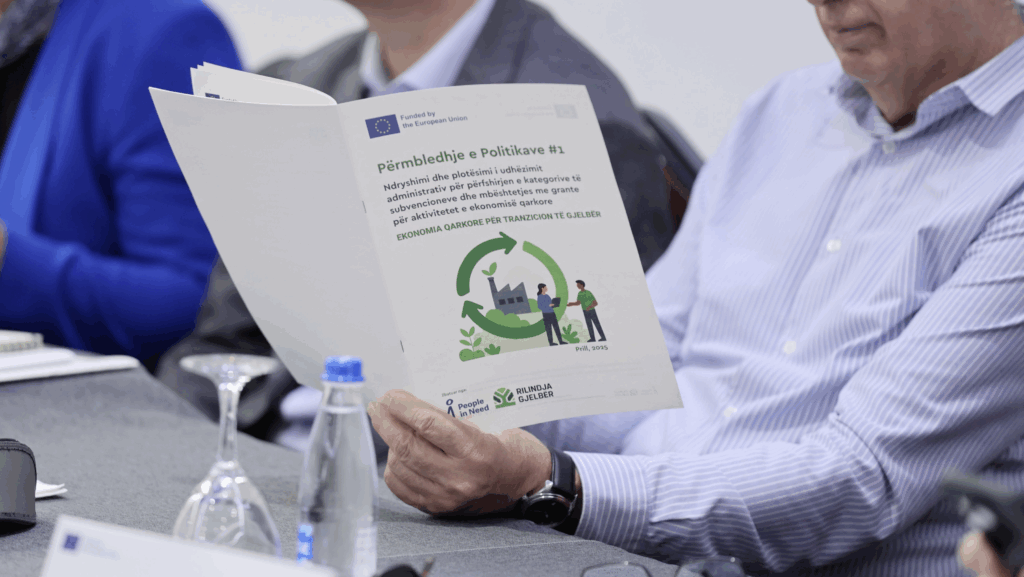The Law on Forests: Safeguarding Kosovo’s Forests and Biodiversity from Deforestation
Introduction
Forests play a critical role in maintaining environmental stability, safeguarding biodiversity, and mitigating the effects of climate change. In Kosovo, forests cover approximately 40% of the country’s territory, contributing significantly to carbon sequestration, the preservation of unique ecosystems, and soil protection. However, widespread illegal logging, overexploitation of resources, and insufficient forest management have resulted in a sharp decline in forest cover, especially in ecologically sensitive areas such as the Sharri Mountains, the Bjeshkët e Nemuna, and the Kopaonik region.
Recognizing the urgency of protecting its forest ecosystems, Kosovo adopted the Law on Forests (Law No. 2003/3, amended by Law No. 04/L-088), which regulates forest management, conservation, and sustainable use. The law provides the legal backbone for safeguarding the country’s forestry sector against illegal activities and unsustainable practices.
The Importance of Forests for Kosovo
Kosovo’s forests are essential for a variety of ecological and socio-economic functions, including:
- Climate Regulation: Forests are a key carbon sink, absorbing significant quantities of CO₂, helping Kosovo mitigate the impacts of climate change.
- Biodiversity Preservation: Kosovo’s forests are home to rich and diverse flora and fauna, many of which are endemic or endangered species.
- Soil and Water Protection: Forested areas prevent soil erosion, regulate the water cycle, and reduce the risk of landslides and flooding.
- Economic Contribution: Forests contribute to Kosovo’s rural economy through timber production, non-timber forest products (e.g., medicinal plants), and eco-tourism.
However, these benefits are increasingly threatened by unsustainable logging practices, lack of investment in forest management, and weak enforcement of environmental regulations.
Key provisions of the Law on Forests
The Law on Forests aims to regulate the use of Kosovo’s forest resources, protect natural ecosystems, and promote sustainable forestry practices. Its core provisions include:
1. Prohibition of Unauthorized Logging
The law prohibits all unauthorized logging activities and establishes licensing systems for regulated timber harvesting. Logging permits are required for any commercial or non-commercial wood extraction, ensuring that forest use is controlled and traceable.
2. Reforestation programs
The legislation mandates the implementation of reforestation programs aimed at restoring degraded or deforested areas. Financial incentives are available for municipalities, private landowners, and organizations that engage in afforestation and forest rehabilitation projects.
3. Environmental Impact Assessments (EIA)
All major infrastructure or development projects that may affect forested areas must undergo mandatory environmental impact assessments. This ensures that environmental considerations are integrated into land-use planning and project design to mitigate negative impacts on forest ecosystems.
4. Penalties and enforcement mechanisms
The law introduces penalties, including fines and legal actions, against entities or individuals who violate forestry regulations, particularly in cases of illegal logging or destruction of protected areas.
Enforcement gaps and challenges
Despite the strength of the law in theory, its enforcement in practice has been inconsistent due to several factors:
- Limited institutional capacity: Kosovo’s forestry agencies, including the Kosovo Forestry Agency (KFA), often face insufficient staffing, equipment, and budgetary constraints, hampering their ability to monitor vast and remote forest territories.
- Informal economies and illegal trade: Illegal logging, often driven by demand for firewood and informal timber markets, remains a persistent challenge, especially in rural areas.
- Weak coordination between institutions: Overlapping mandates and lack of coordination between central and municipal authorities have undermined the effectiveness of forest governance.
- Low public awareness: In many communities, there is limited understanding of the long-term environmental and economic impacts of deforestation.
As a result, significant portions of Kosovo’s forests, including protected areas and national parks, remain vulnerable to degradation.
Toward a sustainable forest management model
To ensure the effective implementation of the Law on Forests, Kosovo must take additional measures to strengthen its forest governance system:
- Increase investments in forestry institutions to improve staffing, monitoring technology (e.g., drones, satellite surveillance), and enforcement capacity.
- Promote community engagement by involving local populations in forest protection and providing alternative livelihoods to reduce dependency on illegal logging.
- Enhance legal cooperation between the Ministry of Agriculture, municipalities, and law enforcement agencies to improve coordination and information-sharing.
- Integrate the forestry sector into Kosovo’s climate action strategy, recognizing forests as a key component in meeting national commitments under the Paris Agreement.
Conclusion
The Law on Forests is a crucial legal instrument that lays the groundwork for protecting Kosovo’s forest ecosystems and combating deforestation. However, the successful application of this law requires not only institutional reforms and stronger enforcement mechanisms but also the active participation of communities and stakeholders at all levels.
Kosovo’s forests are a national asset—vital for ecological balance, economic development, and climate resilience. Protecting them today is an investment in the country’s long-term environmental security and well-being.





